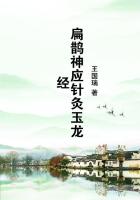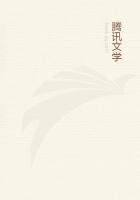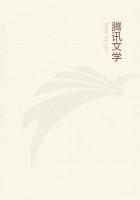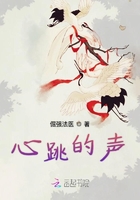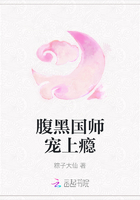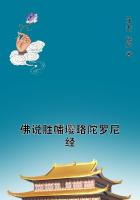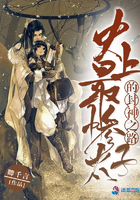DEAR BROTHER:--Your letter of the 22d is just received. Your proposal about selling the east forty acres of land is all that I want or could claim for myself; but I am not satisfied with it on Mother's account--I want her to have her living, and I feel that it is my duty, to some extent, to see that she is not wronged.
She had a right of dower (that is, the use of one-third for life) in the other two forties; but, it seems, she has already let you take that, hook and line. She now has the use of the whole of the east forty, as long as she lives; and if it be sold, of course she is entitled to the interest on all the money it brings, as long as she lives; but you propose to sell it for three hundred dollars, take one hundred away with you, and leave her two hundred at 8 per cent., ****** her the enormous sum of 16 dollars a year. Now, if you are satisfied with treating her in that way, I am not. It is true that you are to have that forty for two hundred dollars, at Mother's death, but you are not to have it before. I am confident that land can be made to produce for Mother at least $30 a year, and I can not, to oblige any living person, consent that she shall be put on an allowance of sixteen dollars a year.
Yours, etc., A. LINCOLN.
1852
EULOGY ON HENRY CLAY, DELIVERED IN THE STATE
HOUSE AT SPRINGFIELD, ILLINOIS, JULY 16, 1852.
On the fourth day of July, 1776, the people of a few feeble and oppressed colonies of Great Britain, inhabiting a portion of the Atlantic coast of North America, publicly declared their national independence, and made their appeal to the justice of their cause and to the God of battles for the maintenance of that declaration. That people were few in number and without resources, save only their wise heads and stout hearts. Within the first year of that declared independence, and while its maintenance was yet problematical, while the bloody struggle between those resolute rebels and their haughty would-be masters was still waging,--of undistinguished parents and in an obscure district of one of those colonies Henry Clay was born. The infant nation and the infant child began the race of life together. For three quarters of a century they have travelled hand in hand. They have been companions ever. The nation has passed its perils, and it is free, prosperous, and powerful. The child has reached his manhood, his middle age, his old age, and is dead. In all that has concerned the nation the man ever sympathized; and now the nation mourns the man.
The day after his death one of the public journals, opposed to him politically, held the following pathetic and beautiful language, which I adopt partly because such high and exclusive eulogy, originating with a political friend, might offend good taste, but chiefly because I could not in any language of my own so well express my thoughts:
"Alas, who can realize that Henry Clay is dead! Who can realize that never again that majestic form shall rise in the council- chambers of his country to beat back the storms of anarchy which may threaten, or pour the oil of peace upon the troubled billows as they rage and menace around! Who can realize that the workings of that mighty mind have ceased, that the throbbings of that gallant heart are stilled, that the mighty sweep of that graceful arm will be felt no more, and the magic of that eloquent tongue, which spake as spake no other tongue besides, is hushed hushed for ever! Who can realize that *******'s champion, the champion of a civilized world and of all tongues and kindreds of people, has indeed fallen! Alas, in those dark hours of peril and dread which our land has experienced, and which she may be called to experience again, to whom now may her people look up for that counsel and advice which only wisdom and experience and patriotism can give, and which only the undoubting confidence of a nation will receive? Perchance in the whole circle of the great and gifted of our land there remains but one on whose shoulders the mighty mantle of the departed statesman may fall; one who while we now write is doubtless pouring his tears over the bier of his brother and friend brother, friend, ever, yet in political sentiment as far apart as party could make them. Ah, it is at times like these that the petty distinctions of mere party disappear. We see only the great, the grand, the noble features of the departed statesman; and we do not even beg permission to bow at his feet and mingle our tears with those who have ever been his political adherents--we do [not] beg this permission, we claim it as a right, though we feel it as a privilege. Henry Clay belonged to his country--to the world; mere party cannot claim men like him. His career has been national, his fame has filled the earth, his memory will endure to the last syllable of recorded time.
"Henry Clay is dead! He breathed his last on yesterday, at twenty minutes after eleven, in his chamber at Washington. To those who followed his lead in public affairs, it more appropriately belongs to pronounce his eulogy and pay specific honors to the memory of the illustrious dead. But all Americans may show the grief which his death inspires, for his character and fame are national property. As on a question of liberty he knew no North, no South, no East, no West, but only the Union which held them all in its sacred circle, so now his countrymen will know no grief that is not as wide-spread as the bounds of the confederacy. The career of Henry Clay was a public career.
>From his youth he has been devoted to the public service, at a period, too, in the world's history justly regarded as a remarkable era in human affairs. He witnessed in the beginning the throes of the French Revolution. He saw the rise and fall of Napoleon. He was called upon to legislate for America and direct her policy when all Europe was the battlefield of contending dynasties, and when the struggle for supremacy imperilled the rights of all neutral nations. His voice spoke war and peace in the contest with Great Britain.

